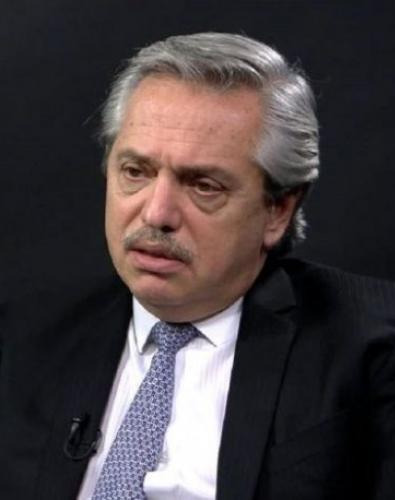
The president of Argentina Alberto Fernandez.
The president of Argentina Alberto Fernandez, announced this week the signing of an agreement with the Sovereign Fund of the Russian Federation to acquire the amount of vaccine doses against COVID-19, called Sputnik V, which will allow the immunization of ten million people before the end of next February.
A team of Argentinian specialists will travel next week to Moscow to confirm all the necessary technical information about this preparation and the first doses could be delivered before the end of the month.
The contract includes another five million vaccines in March, enough to meet the goal of protecting the most vulnerable sectors of the population during the first quarter of 2021.
In order to demonstrate confidence in Russian technology, Fernandez said he would be the first to take the vaccine.
The project is to prioritize people over 60 years of age. Then, those at risk due to their work or suffering from chronic diseases such as diabetes, asthma, high blood pressure and others. Further on, the rest of the population will be attended if they voluntarily request it.
Fernandez noted that the first stage of vaccinations does not mean an end to the danger of this new disease, hence it will be necessary to maintain hygienic and personal protection measures.
Argentina has reached nearly one and a half million cases and more than 40 thousand people have died since the beginning of the pandemic.
In addition to the agreement with Russia, the Argentinean president has signed contracts with other producers -- such as AstraZeneca from Oxford University -- and is part of the COVAX mechanism, with which the World Health Organization hopes to achieve a fair distribution of the vaccine.
There is a well-founded fear that the main Western powers will monopolize the production of these vaccine preparations and leave poor nations defenseless against SARS-CoV-2. The Donald Trump administration in the United States has already taken the first step in that direction.
Humanitarian groups warned that in these conditions of extreme competition rather than cooperation, several low-income nations will only be able to immunize one in ten people.
Oxfam recently said that “no one should be deprived of a life-saving vaccine because of the country they live in or the amount of money they have in their pockets.”

